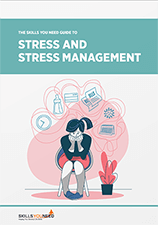Developing Healthy Coping Skills
See also: Coping SkillsIf you encounter a stressful situation or a major disappointment, how do you react? You might not think about it, but your ability to cope with challenges and emotions affects the quality of your life and your happiness. These skills - called coping skills - contribute to many aspects of your life and behavior.
But coping skills aren’t always good, and they aren’t set in stone, either. If your methods of coping with disappointment or challenges aren’t ideal, you can change them and develop healthy skills that can contribute to a healthier life.

What Are Coping Skills?
Coping skills, also called coping mechanisms, are the skills that you use to make sense of the negative things that you may experience during your life. It’s these skills that allow you to still see some positive in a negative event, or to find hope after things haven’t gone as you’d planned.
When someone doesn’t have good coping skills, they may start to view negative events as having been their fault. This is often due to poor feelings of self-worth, and it can cause significant anxiety in life. These people feel like they’re at fault for negative things that happen, even though those negative events may have been in no way caused by their actions.
These skills can be healthy or unhealthy. Healthy skills include using strategies like meditation, exercise, and positive self-talk to deal with daily life. Unhealthy skills involve turning to drugs, alcohol, and negative self-talk to navigate disappointments and frustrations.
Why Coping Skills Matter
You need healthy coping skills to navigate life, and you use these skills on a daily basis. Good coping skills help you to deal with temptations and cravings, and they can help you to avoid potential issues like substance abuse and addiction. For instance, if you’re feeling stressed, you can realize that going for a run is a better way to deal with that stress than drinking a few beers.
Studies have also shown a link between delayed gratification and healthy emotional coping skills. People who are able to delay gratification tend to have better coping skills. This link is important in your daily function. With good coping mechanisms, you can choose to focus on your work, avoid impulsive behavior, and prioritize your family’s needs.
Coping capabilities also become important in certain situations. Teachers of traumatized students need to prioritize self-care and coping skills, which help them to live happier lives despite the added stress and emotional weight of their professions.
Healthy Coping Skills for Common Situations
You’ll use your skills to cope with daily events and feelings, from stress to frustration and confusion. In fact, you’ll encounter some form of stress every day, and good skills can help you to deal with stress appropriately.
When you’re feeling stressed, it’s important to deal with it in healthy ways. Exercising in response to stress is one healthy response. When you exercise, you’ll be helping your body to metabolize your stress hormones so you feel more relaxed. Make exercise a standard part of your daily routine for stress-busting benefits, and pay attention to when you’re feeling stressed so that you can get out for a quick walk, run, or other physical activity.
Stress can also affect your sleep, making it harder to fall asleep or stay asleep. Turning to sleeping pills is one way to cope with this, but it’s not the healthiest option. Instead, try some holistic techniques to teach your body to sleep through the night. Avoid consuming caffeine later in the afternoon or during the evening, and stop doing any mentally stimulating activities, like working, at least a few hours before it’s time to go to bed. When you’re getting ready for bed, take a hot shower or bath, and spend some quiet time reading to relax your body.
Relaxation techniques are another healthy coping mechanism that can help you to deal with stress. Some people find the use of self-empowering mantras, like “I am talented,” or “I deserve this job,” to be helpful, while others find stress relief in meditation. Mindfulness is another helpful technique that can help you to live in the present. Mindfulness involves changing the way that you think and reframing negative thoughts. It can help you to live in the present and better process and deal with the sources of your stress.
Coping mechanisms aren’t just important in dealing with stress, though. They’re necessary to deal with any negative experience, like coping with being bullied. If someone is bullied, they need to realize that they’re not alone, since almost 70 percent of young people will be bullied during their lives. Additionally, bullying victims need to realize that they weren’t the cause of the issue and that the problem originated with the bully. By recognizing that they aren’t at fault, bullying victims can explore positive ways to cope with the experience, like seeking help and recognizing that they didn’t deserve what happened to them.
Further Reading from Skills You Need
The Skills You Need Guide to Stress and Stress Management
Understand and Manage Stress in Your Life
Learn more about the nature of stress and how you can effectively cope with stress at work, at home and in life generally. The Skills You Need Guide to Stress and Stress Management eBook covers all you need to know to help you through those stressful times and become more resilient.
How to Develop Healthy Coping Skills
You may not be satisfied with the skills that you have currently, and that’s okay. There are ways that you can develop healthy coping skills. When you’re faced with something difficult, like feeling stressed or disappointed, observe your attitude toward the incident and think about the types of actions you want to take.
Then, it’s time to evaluate those actions to decide whether they’re healthy or unhealthy coping methods. Ask yourself the following questions:
- Will this be an effective way for me to process or deal with what’s happened and what I’m feeling?
- Will this activity still allow me to come back and deal with this situation, or is it a way of avoiding the situation? (Healthy coping skills always allow you to still deal with the event.)
- Will this avoid creating stress for myself and for others?
- Will this put me or others at risk?
- Can I afford this activity in terms of its financial and time cost?
A healthy coping skill shouldn’t negatively impact your or anyone else’s life. If you need help developing good coping methods, consider seeing a counselor who can provide some unbiased insight into your coping methods. These skills are skills that you will use for your entire life, so putting the time into developing healthy coping methods is well worth the investment.
About the Author
Magnolia Potter is from the Pacific Northwest and writes from time to time. She prefers to cover a variety of topics and not just settle on one. When Magnolia’s not writing, you can find her outdoors or curled up with a good book.

